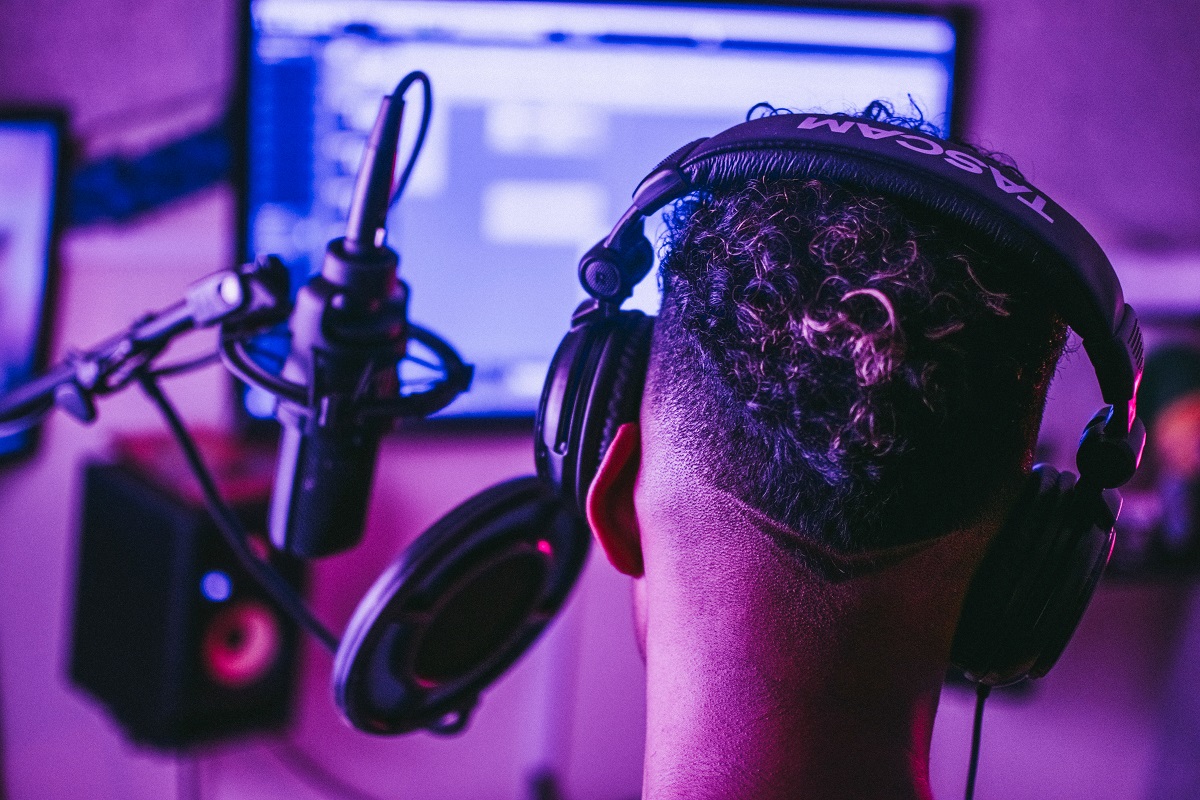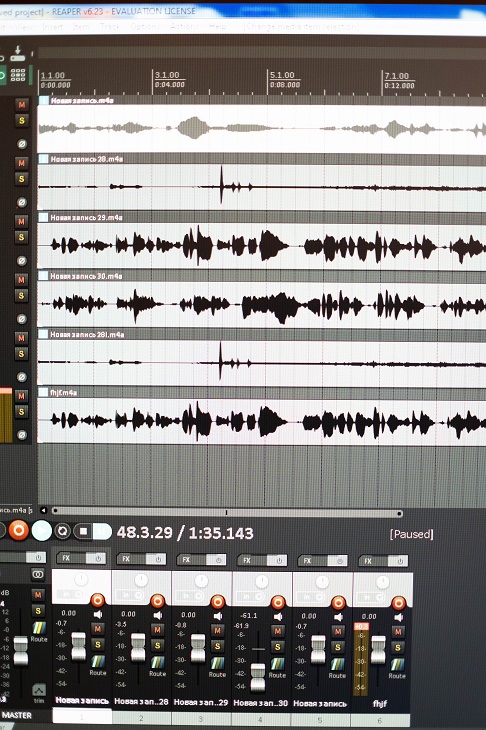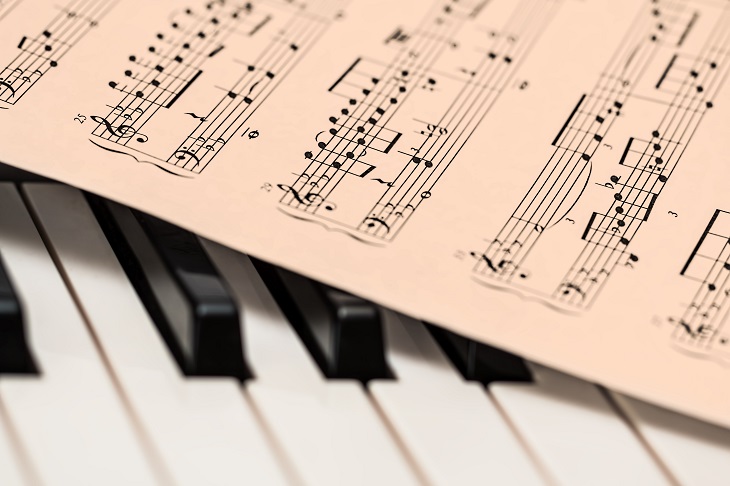Music Tokens: How NFTs Are Disrupting Movie Soundtracks

Movie soundtracks and scores have been a staple of cinema for a long while, but with recent developments in the tech and crypto worlds, it’s time to consider how NFTs are disrupting movie soundtracks. This topic is an exciting one, so let’s dive in!
Two aspects of the entertainment landscape that seem to always be intertwined are music and movies. Enya gave us a song for the ages when her classic “May It Be” appeared on the soundtrack for Peter Jackson’s Lord of the Rings, and composers like Hans Zimmer have made a career out of delivering awesome original scores for iconic movies.
Lately, the movie landscape has been rocked by the introduction of non-fungible tokens (NFTs). These tokens have given filmmakers a new way to monetize their work and connect with their fans. And since movies and music are so interconnected, many composers have been wondering: how does music work with NFTs, exactly?
Today we’ll dive deep into the NFT music landscape and look into how music NFTs could disrupt the music industry, film soundtracks, and more.
Movies & Music: A Match Made In Art Heaven
Music and movies are two of the most popular expressions of art. Apart from silent films, you’ll almost never see a movie without music. Most of the films we watch today have original scores or carefully curated soundtracks, and even in this post-MTV era, many songs still have music videos.
This mix of movies and music has seen many positive effects in Hollywood, and it’s easy to understand the importance of musical contributions to the film industry overall. Picture this: you’re watching Pirates of the Caribbean. You see Captain Jack Sparrow returning from a voyage at the helm of the Black Pearl. He stands with his chest out, looking into the sunset. Sure, the image is pretty awesome on its own – but when you add Klaus Badelt and Hans Zimmer’s “He’s a Pirate” from the film’s score, you have pure magic.
Or take the scene from Game of Thrones where (spoiler alert!) Cersei Lannister enacted a plot to kill everyone in the Sept of Baelor. Imagine how that would have felt without Ramin Djawadi’s “Light of the Seven” building up the tension in the background. Doesn’t quite feel the same, right?
The ability for movies and music to leave a stronger impression when combined is why they’re so vital to one another. Our favorite way to think about it? Movies create a picture for your eyes, while music plants a story in your soul.

How NFTs Benefit Musicians
The NFT revolution has been rapid. In just a short time, NFTs have entered every corner of the entertainment industry, providing creatives with new ways to raise money and connect with their fans.
There’s been a lot of talk about the benefits of NFTs for filmmakers and movie producers. But many people still wonder: are NFTs good for music? How do composers and musicians benefit from this revolution?
1. An Easy Way To Prove Ownership
One major way in which NFTs are disrupting music soundtracks is by ensuring that composers can show easily verifiable proof that their work is authentic.
An NFT is a non-fungible token. Essentially, it is a digital asset that represents a physical asset – in this case, an original movie soundtrack. NFTs are stored on the blockchain, and their biggest benefit comes from the fact that they are unique. No two NFTs are the same, so it’s theoretically impossible to copy an NFT or pirate it.
In the digital world, music scores and soundtracks can be pirated or duplicated easily. A person can download a music score and make hundreds of copies, selling them to others. Everyone gets the score, while the original composer is left with nothing.
With NFTs, however, composers can finally break free of this trap. They can assign proof of authenticity to their work, ensuring that every piece is original and authentic. Each NFT could come with additional incentives and anyone who wants to own it has to pay for it.
2. Better Royalties And Commissions
Another case in point for how NFTs are revolutionizing the music industry is how easily composers can now earn from their work in perpetuity.
A major issue facing creatives is an inability to control revenue streams. Traditionally, music composers make soundtracks for movies, which can be extracted and published on the internet for free. With NFTs, this won’t be the case.
Every soundtrack can be cataloged as an NFT, and composers can set royalties for them. So, when you create a soundtrack as an NFT and put it online, you can set a royalty and ensure that anyone who buys the NFT and sells it will have to pay you a commission on the money they make.
3. Artist Empowerment
The traditional landscape involves a lot of middlemen when it comes to music distribution. NFTs could change that. As a music composer, you can create your work and put it out there yourself. When it gains traction and people become interested, you can choose to release it as an NFT and control the entire sales pipeline. Instead of relying on a movie studio or record label to handle these things, you get to do so on your own.
Thanks to blockchain technology, a ton of the work is already off your shoulders. But guess who gets the lion’s share of the revenue? That’s right – you!
What Does the Future Hold? How Music NFTs Could Disrupt The Music Industry
Right now, a lot of artists have already jumped on the NFT train. Grimes, Steve Aoki, 3LAU, and more are just the tip of the iceberg. With the technology gaining so much adoption in the market, many have asked: “Can NFTs change the music industry?”
For now, it’s still early days. NFTs gained prominence less than five years ago, and the market for NFT music alone was valued at $1.35 billion in 2021. With so much innovation undoubtedly still ahead, this is just the beginning for NFT music.
The space is as vibrant as it has ever been, and we predict it will become even more so in future. If you’re a music composer, this is the perfect time to jump on the NFT train!
Featured image by Davis Sánchez on Pexels
Tags: Film Industry, Filmmaking, Movie Soundtracks, Music, Music Tokens, NFT, NFTs

